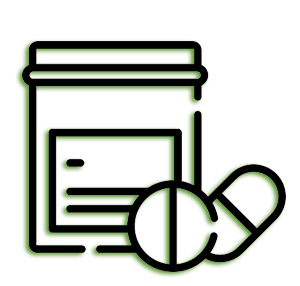
22 Dec COULD THE NEW WEIGHT LOSS MEDICATION HELP YOU?
If it passes final FDA approval on Jan. 31, a new weight loss medication called Contrave could soon be available. Could it help you? Possibly, and especially if you struggle with food addiction issues.
Unlike appetite suppressants and other existing weight loss medications, Contrave works in a new way by combining two medications currently in use to treat nicotine and other addictions naltrexone SR and bupropion SR into one.
It appears that the medication could help reduce cravings and binge eating episodes in people with food addictions, which affect around 1 in 20 people in the general population, and 1 in 3 in people with a BMI of 40 or higher.
The fact that studies show this medication appears to help people with food addiction gives credibility to the theory that food addiction plays a powerful role in obesity for some people. Like other addictions, food addiction goes beyond willpower or logic and leads people to engage in self destructive behaviors despite serious repercussions to their health, work, and personal relationships. No matter how much they may want or wish they could stop the behavior, it seems to be beyond their control.
For many of my patients, this seems to be the case. They may know they shouldn’t eat certain foods in the amounts or as often as they do, but they just can’t seem to help themselves. It’s as if ice cream (or whatever the food may be) has them under a powerful spell. A person with a food addiction can’t think it away, or rationalize it away.
There are many theories about why and how addictions develop, but it’s still an area of health we have yet to fully understand. What we do understand is that certain medications, such as the ones contained in Contrave, seem to help reduce the urgency and relentless drive of the addiction in question enough so that behavioral counseling, lifestyle changes, and ongoing support can take hold.
It’s important to keep in mind that taking a medication like Contrave alone will not make a weight issue go away. In studies, participants dropped around 5 percent more weight when taking the medication. It is only when the medication is used as part of an overall medically supervised weight loss program including a medically supervised liquid or high nutrition, low-calorie meal plan, behavioral counseling, exercise, and support that it can really make a difference.
I am also hopeful that the medication might help people who have lost the weight to keep it off because, again, it appears to reduce the frequency and intensity of a food addiction, which does not go away when the excess weight is lost.
As with other addictions, a food addiction is something that one will have for the rest of his or her life. An addiction follows fairly predictable patterns and should be viewed as something that will need to be managed over time as it waxes and wanes rather than as something that will be cured once and for all. I tell my patients with food addictions that keeping the addiction in check most of the time is what they should aim for. Unlike other addictions such as nicotine or alcohol, it’s not possible to go cold turkey with food and then avoid it forever after.
Compare it to an ex-smoker who was told he or she needs to smoke three but no more cigarettes a day to survive, or to a former alcoholic who must drink three drinks a day but no more, and you can start to see the challenge. But it is possible. We have seen patients with advanced food addiction break the cycle and regain control over their eating habits in our program, and it can happen for you, too.
That’s why I think even though Contrave isn’t a magic bullet for weight loss, it could be a great addition to the tool chest we have for dealing with food addiction. Stay tuned to see if the FDA agrees.


